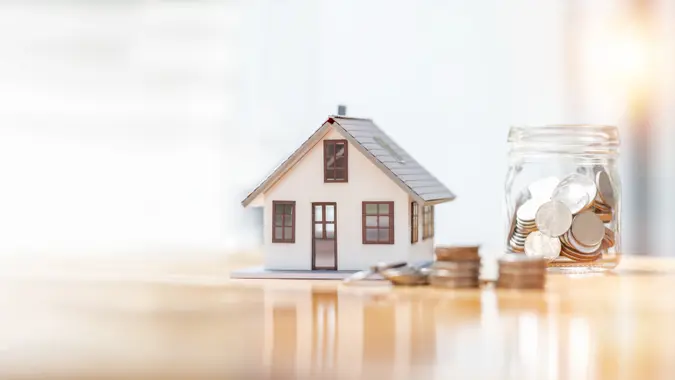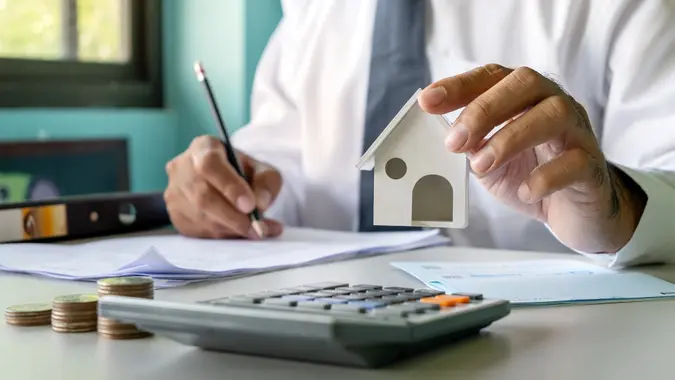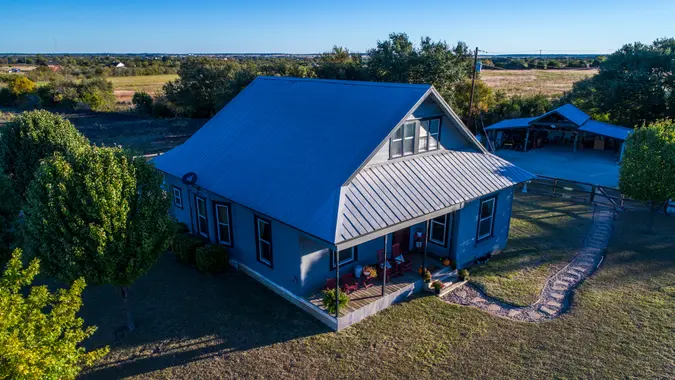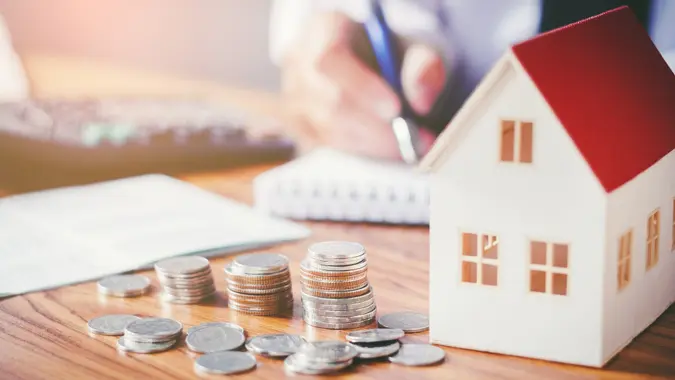Should You Wait Until 2026 To Take Out a Mortgage Loan? Experts Weigh In

Commitment to Our Readers
GOBankingRates' editorial team is committed to bringing you unbiased reviews and information. We use data-driven methodologies to evaluate financial products and services - our reviews and ratings are not influenced by advertisers. You can read more about our editorial guidelines and our products and services review methodology.

20 Years
Helping You Live Richer

Reviewed
by Experts

Trusted by
Millions of Readers
For several years, homebuyers have been holding their breath, hoping for mortgage rates to dip. With the Federal Reserve Board having made some small rate cuts this year and signaling additional ones in 2026, many are asking if they should wait until next year to buy a home.
But experts say that personal readiness matters more than predictions or rate drops.
“The best time to buy is when your personal finances allow you to do so,” said Michael Pearson, senior vice president of business development at A&D Mortgage. “Many will sit on the fence waiting for the perfect time or rates to move to a certain point. But most of the time, when we try to time the market, it does often backfire.”
Timing the Market Can Cost You
Mortgage rates are only one factor in the cost of homeownership. Even if they fall in 2026, other costs, like home prices and insurance, could rise significantly enough to cancel out the savings.
“Historically, property values increase an average of 3%-5% per year,” Pearson said. “So even if rates drop next year, the potential savings on that lower rate may be negated by increased sales prices. And property taxes and insurance rise as sales prices increase as well.”
He gave a quick example: A $400,000 home that appreciates 5% in one year will cost $20,000 more if you wait, and that’s before factoring in higher taxes or insurance premiums.
How Much Lower Rates Really Save You
For many potential homebuyers, the appeal of a lower monthly payment is strong motivation. And indeed, falling rates can make a difference.
“A $400,000 loan saves about $140 to $150 per month off the mortgage payment for every 0.5% decrease in rate,” Pearson said.
“That kind of reduction can add up, especially over the life of a loan. The difference in a buyer’s monthly payment and the amount of interest paid in the long term is tremendous. It usually equates to hundreds of thousands over the life of the mortgage,” Adem Selita, co-founder of The Debt Relief Company, said.
Still, Selita cautioned that buyers shouldn’t assume rates will drop quickly or dramatically. “Rates tend to go up a lot quicker than they go down,” he said. And even when the Fed cuts its benchmark rate, lenders may take a while to reflect those changes.
In short, waiting might net a lower monthly mortgage payment, but you could lose out on a good deal as home prices rise in the meantime.
Marry the House, Not the Rate
If you find the right property and can afford it, there’s no reason to hold back. You can always refinance later, but your dream home might not wait.
“Marry the house, not the rate,” says Julian B. Morris, a CFP with Concierge Wealth Management. “If you see your dream home right now and you can afford it, go for it. There is no guarantee that rates will drop in the future, even though things are trending that way.”
Waiting can also bring an additional complication, he added. “Lower rates will bring more competition from people who have been sitting on the sidelines,” Morris said. “The longer you wait, the longer you risk your dream home passing you by.”
If You Do Wait, Use the Time Wisely
For buyers who aren’t quite ready, the remainder of 2025 is a good time to get prepared. Pearson advised taking the time to strengthen your financial foundation.
“Get your financial house in order,” he said. “Improve your credit, pay down debt and save. Even if not used as a down payment, having additional reserves is very helpful in acquiring the best mortgage terms.”
Here’s what that looks like in practice:
- Raise your credit score. Improving your score by 20-40 points could lower your future rate by half a percent.
- Pay down revolving debt. Lower balances improve your debt-to-income ratio and your loan eligibility.
- Build extra savings. More cash means a better down payment, lower mortgage insurance and a safety net if the economy dips.
- Explore special programs. “Most lenders offer affordable lending programs that assist first-time homebuyers,” Pearson noted. “These usually require less down payment, have flexible terms and may even offer lower mortgage insurance premiums.”
Selita added that downturns can present unique opportunities. “During a recession, cash is typically in short supply, and that lack of money supply usually equates to the best deals in terms of acquiring properties,” he said.
Readiness Beats Predictions
No one can predict where rates or home prices will land next year. Economic and geopolitical shifts can quickly change the outlook. What buyers can control is their own financial preparedness.
“If I know I can afford to purchase a home and I am invested over the long haul through peaks and valleys, I will buy now,” Pearson said. “Could I do better? Yes. Could I do worse? Also yes. Personally, I’d rather go with what I know for certain.”
For most people, the question shouldn’t be when will rates drop, but whether you’re ready when the right home appears.
 Written by
Written by  Edited by
Edited by 

























